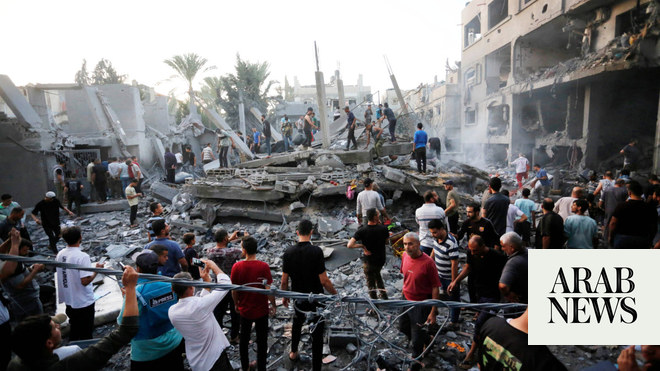
When bombs fell around us in Gaza, my son Adham would become stone-like – unable to move, eat or sleep. Sometimes he was even unable to breathe.
Adham is 27 years old and has cerebral palsy. No human being should have to endure what the people of Gaza are being put through, but the feeling of desperation and sheer helplessness is even worse for people with disabilities, or who are sick. As a parent, it has been heart-wrenching to see the toll that this conflict has taken on Adham.
This week, I was horrified to hear of the death of Muhammed Bhar, a 24-year-old with Down’s syndrome and autism whose mother says he was attacked by an IDF dog when their home was raided by soldiers, then left to die. She told Middle East Eye that he had never before been able to speak, yet “out of horror, he was screaming at the dogs, sometimes saying Wala, wala [“Hey, you] and sometimes Khalas, ya habibi [“Enough, my dear”].
Then there was the four-year-old girl whose leg was crushed beyond salvaging – and who has no access to much-needed reconstructive surgeries and therapy that might give her some hope of recovering. Deaf people are not spared the sight of mangled bodies. Blind people are not spared the smell of death.
When evacuation orders were issued in the north, initially in October last year, many people with disabilities could not flee – and their families refused to leave them behind. Those who could escape were packed like luggage into cars, carts or minibuses. Assistance devices, such as wheelchairs, canes, crutches and medical equipment often had to be left behind. Hearing aids, eyeglasses, adaptive toilet seats and incontinence pads were destroyed or lost.
In the beginning, people with disabilities were receiving limited humanitarian aid, such as food parcels, but accessing them requires access to transportation and fighting desperate crowds. Imagine the chaos of 2,000 people scrambling over the same food parcel. Those who couldn’t go themselves had to rely on others to collect their share.
In tents there is little or no space to move around. Toilets are inaccessible and shared by hundreds of people. Moving from place to place brings added strains: for my 59-year-old body, my grown son is heavy to carry, but I do it to keep him safe. Many families distribute themselves into different corners of their homes so that, should a bomb hit, hopefully someone will survive. Other families do not scatter themselves, choosing instead to live together and die together. Adham cannot sleep alone, so we are one of those families.
Most assistive devices are not being included in the minimal humanitarian aid coming into Gaza. The Israelis have declared certain spare parts and batteries for these devices dangerous, so-called dual use items – saying they could be used for military purposes. Without wheelchairs, canes, walkers, splints and prosthetics, people with disabilities are struggling to survive, left isolated, with no independence or sense of autonomy or dignity. There is no liquid food or disability-inclusive feeding equipment, like feeding tubes or adaptive utensils. The psychological torture of feeling like a burden is unbearable and degrading.
At least my family has managed to escape from Gaza to Egypt. After 200 days in hell, with Adham’s wellbeing to prioritise, we decided to leave. Initially I wanted to stay behind to continue my work with people with disabilities, but my wife and son refused to go without me.
We raised $15,000 (£11,500) for the three of us to cross the border. It took two months to coordinate – 60 days of not knowing if we would be granted exit, or survive the journey.
While we are safe now, being out of Gaza is not easy. When I see the full scale of the war on news coverage, I feel, smell and hear the horror, as if I was still there, leaving me with a nausea I cannot shake. We don’t know what to do, except to let the world know, so that people everywhere across the globe, each nation and each state can assess for themselves how complicit they are in this unprecedented human-made humanitarian disaster.
As brutal airstrikes continue, and yet more evacuation orders force Gazans from place to place, I cannot stop thinking about the people with disabilities – who have nowhere to go, and no one to help them.
Jamal al Rozzi is executive director of the National Rehabilitation Society in the Gaza Strip












